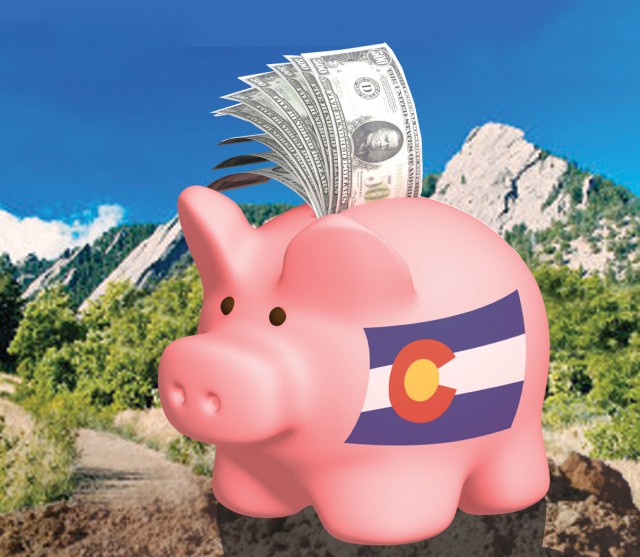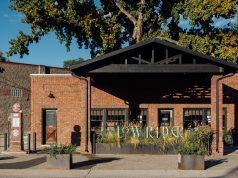
For every dollar spent in retail stores in Boulder, about 3.5 cents in tax revenue goes to the city to improve services for residents and businesses, including open space expansion and enhancement, road maintenance, and development of parks, trails, and recreational facilities.
“It’s like watering our own garden,” says Eric Nickell, budget director for the City of Boulder Finance Department. “We’re basically refreshing our economy with additional money on groceries and rent and mortgages and yoga classes and clothing and all that when we put our money in with local merchants that have local employees. The more local we get, which means local employees, local owners of the businesses, it all comes back to us. The most direct impact to improve our own streets and our own recreation and park and open space is to put that money into local purchases.”
The local sales tax paid on purchases made in Boulder is currently at 3.41 percent. This means that $3.41 of the tax paid on a $100 purchase — or about half of what a consumer pays at the register — is dedicated to improving various aspects of the city. Of this $3.41, 88 cents goes toward open space, 60 cents goes toward transportation, 25 cents goes toward parks acquisition and recreation services, and the remaining $1.73 is labeled as unrestricted funding that goes toward the police and fire departments, libraries, courts, research, as well as several other programs and departments within the city that are in need of these funds.
The portion of funds that is dedicated to open space contributes to the city’s Capital Improvement Program, which is a big part of the city’s spending, according to the city’s annual budget report for 2011, and is an example of what sales tax earnings are being used for in Boulder. The improvement program is used primarily for open space projects such as trail additions and repairs and the restoration of historic buildings. According to a report detailing the CIP by the City of Boulder Open Space and Mountain Parks division, 92 percent of Open Space Fund revenues comes from dedicated sales and use tax collections.
Some of the completed projects listed include various trail repairs and reroutes of trails such as Anemone, South Boulder Creek, and Big Bluestem trail. Several historic structures were repaired as well, including the Weiser House, which is eligible for the National Register of Historic Places.
City officials say they hope to move forward with projects such as these and are relying on taxes gathered from local businesses to help make it possible. As the holiday season approaches, shopping locally becomes a more crucial factor for maintaining the city’s budget.
“A disproportionate amount happens this time of year because of giftgiving and so this is where the city looks at what comes in and the city is able to offer richer services next year if we have a good sales tax here,” Nickell says. “That’s one of the biggest parts of our revenues.”
The total for retail sales tax collection in Boulder was $74,961 in 2011, up nearly $3,500 from the previous year and up $16,731 compared to 2004, according to the Market Profile released in March by the Boulder Economic Council. The report attributes this, in part, to the opening of the Twenty Ninth Street mall in 2007. The other part may have a lot to do with Boulder’s diverse economy, which is made up of a variety of small businesses as well as large chains.
“There’s a certain scale of retail in the downtown,” Nickell says. “It’s nice to have all the niches covered. We’ve got Home Depots, we’ve got Best Buys, we’ve got Target, but we also have Pearl Street.”
Pearl Street serves as an ideal location for business owners due to its popularity and level of tourism, which helps bring in money from areas outside of the city. The mall was first constructed in 1976 and has been a vital part of Boulder’s economy ever since.
It doesn’t really matter where you shop in Boulder, just as long as it is within city limits. Both large chains and small “mom and pop” type of stores benefit the city in the same way because the same portion of the sales tax will go to the city either way, according to Nickell.
So as you are Christmas shopping and deciding which stores to visit, it may be worth it to consider sticking to the retailers that are right here in Boulder.
After all, if you have to pay somebody, it might as well be your hometown.
Respond: [email protected]














